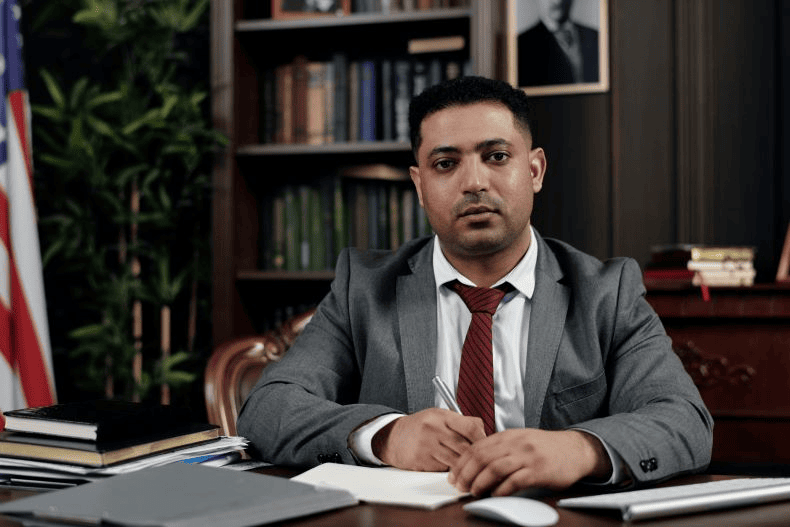
Car accidents can be stressful and complicated situations, especially when the vehicle involved is leased. If you find yourself in a leased car accident in Nevada, it’s essential to understand the legal and insurance considerations that come into play. In this article, we’ll delve into the specifics of leased car accidents, helping you navigate through the process and make informed decisions.
Leased Car Accidents: The Basics
What is a Leased Car?
A leased car is a vehicle you don’t own outright but instead make monthly payments to a leasing company. The leasing company retains ownership throughout the lease period, and you’re responsible for maintaining the vehicle and insuring it.
How Do Leased Car Accidents Occur?
Leased car accidents can happen just like any other car accident. Whether you’re in Las Vegas or elsewhere in Nevada, accidents involving leased vehicles can result from various factors such as impaired driving, distracted driving, or simple negligence.
Understanding Your Lease Agreement
Before we delve into the legal and insurance aspects, it’s crucial to review your lease agreement. Your lease contract likely outlines the requirements and responsibilities related to insurance coverage and what to do in the event of an accident. Make sure to understand your obligations and rights under this agreement.
Legal Considerations in Leased Car Accidents
Determining Fault in a Leased Car Accident
Just as in any other accident, determining fault is critical in leased car accidents. If the accident was not your fault, the other driver’s insurance company should cover your damages. However, if you are found at fault, your insurance coverage comes into play.
Seeking Compensation for Damages
If you’re not at fault and the other driver’s insurance company is responsible for covering your damages, you may have to deal with them directly. This can sometimes be a challenging process, and in such cases, it’s advisable to consult with a car accident attorney in Las Vegas, NV, who can guide you through the legal process.
Personal Injury Claims
In cases of personal injury or bodily injury resulting from the accident, it’s essential to seek medical attention promptly. Your medical expenses may be covered by the at-fault party’s insurance company, but you should also inform your insurance provider. You can collect compensation for medical expenses, loss of income, and other costs related to the accident.
Legal Counsel for Leased Car Accidents
If the accident resulted in significant damage or personal injury, it’s highly recommended to seek legal counsel. A reputable law firm in Nevada, experienced in handling car accident cases, can provide you with invaluable assistance and ensure your rights are protected throughout the process.
Insurance Considerations in Leased Car Accidents
Understanding Your Insurance Coverage
Your leased vehicle is required to have auto insurance coverage, which typically includes liability, collision, and comprehensive coverage:
Auto insurance for leased vehicles typically includes three primary types of coverage:
Liability Coverage:
This is a fundamental part of any auto insurance policy, whether for leased or owned vehicles. It covers bodily injury and property damage that you may cause to others in an accident where you are at fault. Liability coverage is a legal requirement in most states, including Nevada, and is crucial to protect you from personal liability in the event of a car accident.
Bodily Injury Minimum Coverage for One Person: $25,000
Bodily Injury Minimum Coverage for All Injuries in an Accident: $50,000
Property Damage Minimum Coverage for Property Damage: $20,000
Collision Coverage:
This coverage is specifically designed to pay for the repair or replacement of your leased vehicle if it’s damaged in a collision, regardless of who is at fault. It is a key component in ensuring that the value of your leased car is protected, as accidents can happen even when you are not at fault.
Comprehensive Coverage:
Comprehensive coverage safeguards your leased car against non-collision incidents. This includes damage from theft, vandalism, natural disasters, or other unforeseen events. It’s especially important for leased vehicles, as these incidents can lead to significant repair costs.
However, the specific insurance requirements can vary depending on your leasing contract. It’s essential to review your lease agreement to understand the exact terms and coverage expectations.
Gap Insurance for Leased Cars
One crucial aspect of insurance coverage for leased cars is “gap insurance.” Gap insurance covers the difference between the remaining balance on your car lease and the actual value of the car in the event of a total loss. This can be a lifesaver, ensuring you don’t end up with double charges for a car you can no longer use.
Dealing with Your Insurance Provider
If you are found at fault in the accident, you will need to work with your auto insurance company to cover damages to your leased car and other parties involved. Your monthly payments and lease terms may be affected, so you need to keep open communication with your insurance provider to understand the implications fully.
Repairing Your Leased Vehicle
In cases where your leased vehicle is repairable, you should take it to an authorized repair shop or body shop approved by your leasing company. Failure to do so may result in complications regarding insurance coverage and repairs.
Dealing with Leasing Companies
Leasing companies require you to maintain insurance coverage to protect their investment. Ensure that you promptly report the accident to your leasing company and comply with their instructions regarding repairs and documentation. Non-compliance can result in a breach of your lease, causing additional legal and financial issues.
Lease Agreements and Monthly Payments
Lease agreements may specify the responsibility for lease payments during repairs. Some agreements might pause payments while your car is being repaired, while others may not. Review your lease terms and consult your leasing company to understand how lease payments are affected by the accident.
Collecting Compensation for Property Damage
In addition to your leased car, property damage resulting from the accident may include damage to other vehicles, structures, or objects. Your insurance claim should cover these damages, but it’s crucial to ensure that all damages are thoroughly assessed and compensated.
Gap Coverage for New Car Leases
If you have recently acquired a new vehicle lease, you may not have paid down much of the lease yet. In such cases, gap coverage becomes even more critical, as the difference between the car’s value and the remaining balance on the lease is likely substantial.
Leased Car Accidents Involving Long-Term Rentals
Some lease agreements are for more extended periods, which may affect the insurance coverage and legal considerations. Make sure you understand how your long-term rental lease agreement handles accidents and insurance.
When to Seek a Car Accident Attorney
If your leased car accident has led to significant legal, insurance, or financial complications, seeking a car accident attorney in Las Vegas, NV, can be a wise decision. An experienced attorney can provide you with the necessary legal counsel and assistance in recovering damages and dealing with insurance companies and leasing companies.

Free Consultation with The Bourassa Law Group, Nevada’s Finest Law Firm
In conclusion, leased car accidents come with their unique legal and insurance considerations, but being informed and prepared is crucial in dealing with such situations. Make sure you understand your lease agreement, insurance coverage, and your legal rights in the event of an accident. Seek legal counsel if necessary, and always keep open communication with your insurance provider and leasing company to ensure a smooth resolution of the situation.
If you’ve been involved in a leased car accident in Nevada, don’t hesitate to reach out to BLG for a free consultation. We have extensive experience in handling leased car accident cases and can provide you with the legal counsel you need to navigate through this challenging situation.
Take the first step toward justice and book your appointment today!





